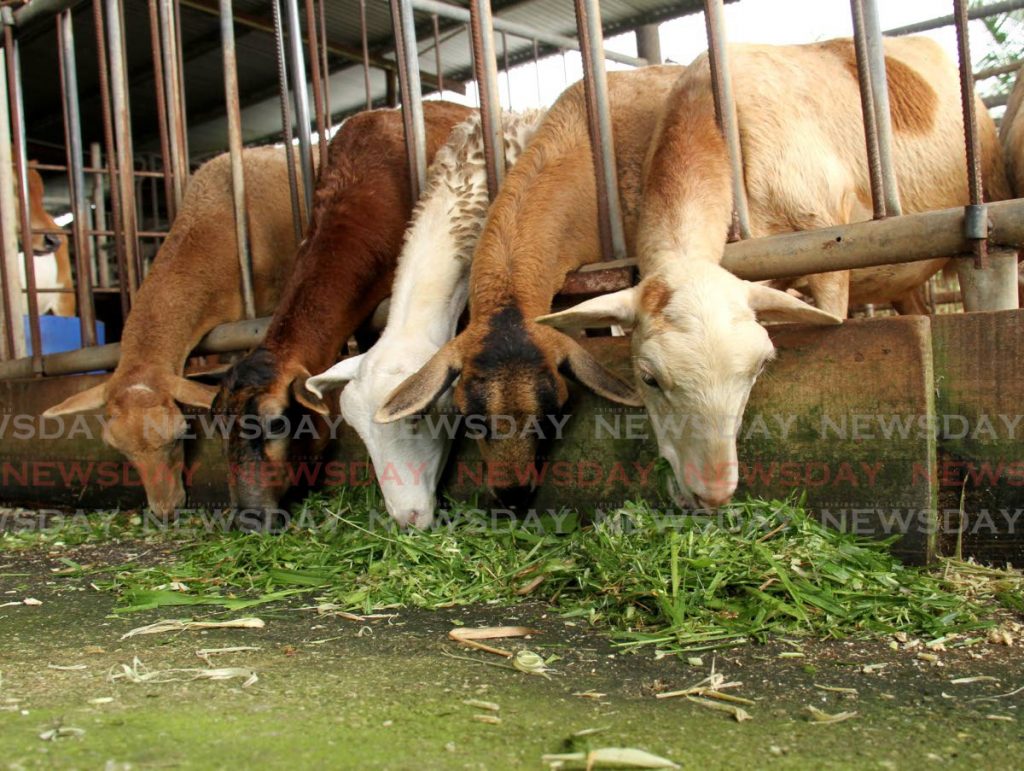Livestock feed price increases from Monday

Livestock farmers will face another price increase for feed for their animals from Monday from one of the major importers.
In an interview with Sunday Newsday, the newly-installed president Agricultural Society president Darryl Rampersad claimed that there will be a 10 per cent increase on all livestock feeds and has called on Agriculture Ministry and the Ministry of Trade and Investment (MTI) to provide answers for the increases.
He said the information only became available to the organisation on Saturday and wondered why it was such a hidden move.
“We only found about the price increase about 6 am today (Saturday) and we are all wondering what the justification for this since the raw materials for feed is has not increased over the last few years.”
Rampersad said if this is allowed to take place then there will be a ripple effect of the price increases that will have to be passed on to the consumers.
Association of TT Table Egg Producers vice president Dennis Ramsingh said this was not the time for an increase because farmers were unable to afford it.
“Come Monday morning it is the poor people who will be affected as prices in milk, eggs, meats, cheese, butter and even fast foods such as KFC, Royal Castle, and others will be affected.”
But Minister of Agriculture, Land and Fisheries Clarence Rambharat said he was unaware of any price increases to take effect on Monday.
“I am not aware. Feed is imported and sold privately. If retailers have announced an increase, they should be able to justify it. I know that grain prices have been rising, shipping costs are up and demand for grain exceeds supply.
“Both the Minister of Trade and Industry and I have been speaking with the grain importers and monitoring global prices. Prices are influenced by supply and demand and the importers are trying to manage increasing costs on the global market,” Rambharat said.
He added that the ministry does not fix feed prices as feed and grain imports are private sector activities.
General manager of Mastermix Hamant Mahabir confirmed to Sunday Newsday that his company will be increasing prices from Monday because of the global increases in supply and demand.
“A number of actors have contributed to this such as a large demand for grains by China and the challenges with the weather in South America has compromised output.
“Mastermix has not adjusted prices since August 2012 and over the years we have absorbed whatever price increases there have been. It is not only corn, and soybean are not the only ingredients that go into feed, there are many other ingredients. And then there is labour cost, local transport cost and a combination of other factors that has put us in an unfortunate situation to increase prices.”
However, National Flour Mills (NFM) chairman Nigel Romano said the company will not be raising its prices next but noted that market prices were constantly being monitored.
“We will be evaluating based on the cost of raw material imports of corn and soya as a result of the impact of the pandemic on the supply chain and aggressive buying by certain large economies on supply and demand dynamics,” he said.
NFM supplies a significant portion of feed to livestock farmers along with two other private companies.
The World Agricultural Supply and Demand Estimates (WASDE) report for January 20/21 has stated that corn and soybean production have decreased forcing prices up.
“Major global coarse grain trade changes for 2020/21 include reduced corn imports for the EU-27+UK, Mexico, Iran, Vietnam, Colombia, Chile, Egypt, Malaysia, Peru, and Saudi Arabia, with a partly offsetting increase for China.
“For 2019/20, Argentina’s exports for the marketing year beginning in March 2020 are lowered based on the shipment pace to date. Foreign corn ending stocks are lower, mostly reflecting reductions for Brazil and the EU27+UK. Global corn stocks, at 283.8 million tonnes, are down 5.1 million.”
Statistics further stated that corn production was estimated at 14.182 billion bushels, down from 324 million and exports were down 100 million bushels, which reflected sharply lower supplies and higher expected prices.
Soybean production was lowered to two million tons from 48 million for Argentina and 0.2 million from 2.2 million for Uruguay, which was due to dry weather conditions in December and early January.
It also noted that broiler, turkey, and egg production forecasts were lowered for 2021 as higher feed costs were expected to slow production growth.

Comments
"Livestock feed price increases from Monday"